List of classical philologists at the Martin Luther University Halle-Wittenberg
The list of classical philologists at the Martin Luther University Halle-Wittenberg includes well-known university professors in this subject who worked and are working at the Martin Luther University Halle-Wittenberg .
overview
At the universities of Wittenberg and Halle, which were founded in 1502 and 1694 respectively, the Greek and Latin languages and literature were mainly taught as an auxiliary science of theology until the 18th century. Their representatives were mostly professors of eloquence at the same time. Christian Adolph Klotz (1738–1771), professor of philosophy and eloquence since 1765, was one of the first representatives of classical philology as an independent discipline at the university.
With the appointment of Friedrich August Wolf (1759-1824) as Professor of Philosophy and Education (1783), a new era began for the study of Classical Philology in Halle. Following the example of the Göttingen seminar (Wolf had studied with Christian Gottlob Heyne from 1777–1779 ), he founded a philological seminar in Halle in 1787, which served the training of teachers as well as specialist scientists. After the University of Halle closed in 1806, Wolf went to Berlin in 1807, where he helped found a new university .
In the 19th century
After the University of Halle was re-established by the Westphalian government (1808), Christian Gottfried Schütz (1747–1832), professor of literary history since 1804, was appointed professor of eloquence and head of the philological seminar. The financial resources of the seminar were severely cut. Nevertheless, Schütz intensified the seminar activities of the students by increasing the weekly exercises from two to six hours. In 1816 August Seidler (1779–1851) was appointed professor of Greek literature and appointed co-director of the Philological Seminary. In addition to these two, Schütz and Seidler, after the merger of the Universities of Halle and Wittenberg by the Prussian state (1817) Abraham Gottlieb Raabe (1764–1845), who had previously taught in Wittenberg. According to the new regulations of June 26, 1817, the purpose of the seminar was designated as "the education of skilled teachers for high schools"; the scientific orientation of the seminar exercises was thus restricted by the authorities. In addition to Raabe, Schütz and Seidler, Karl Christian Reisig (1792–1829) worked from 1820 , initially as associate professor.
The seminar leadership was passed in 1824 from Seidler to his successor Moritz Hermann Eduard Meier (1796–1855). In 1829 new regulations came into force that changed the seminar's specific school orientation into a general scientific one. In addition, Gottfried Bernhardy , Reisig's successor, was appointed third seminar director. In 1831, Schütz resigned from the management of the seminar for reasons of age, which Meier and Bernhardy have shared since then. After Meier's death, Theodor Bergk (1812–1881) was appointed in 1857 , and Heinrich Keil (1822–1894) after his retirement in 1869 .
Around the middle of the 19th century there were only two chairs for Classical Philology. In 1874 Wilhelm Dittenberger (1840–1906) was appointed to a third chair, which, however, was not associated with the seminar direction. With Bernhardy's successor Eduard Hiller (1844-1891, appointed 1876), a generation change began: Hiller came from the Bonn School of Philology ( Otto Jahn , Friedrich Ritschl ). He was particularly concerned with Hellenistic and Roman poetry.
Halle and the "big science company": Blass and Wissowa
His successor Friedrich Blass (1843–1907) came from the same school as Hiller and dealt with wide areas of Greek literature, especially rhetoric. Together with Georg Wissowa (1859–1931), Keil's successor, he reformed the Philological Seminary. Unlike Blass and Hiller, Wissowa came from the Breslau School of Philology.
As a science organizer, Wissowa incorporated the University of Halle into what was then the "large science enterprise". He headed the editorship of the Realencyclopedia of Classical Classical Antiquities , to which he consulted students, colleagues and experts from all over Germany and abroad. His own research focus, the history of Roman religion, was also the subject of the dissertation of many of his students.
From the turn of the century to the end of National Socialism
In the first third of the 20th century, alongside Wissowa, Otto Kern (1863–1942) and Karl Praechter (1858–1933) were professors. After a stroke (1923) Wissowa had to stop his research and teaching activities. His successor in 1925 was Ernst Diehl (1874–1947), a pupil of the Bonn school. Praechter's chair was not filled again after his retirement (1927).
Under the leadership of Otto Kern, Ancient History, Classical Philology and Archeology were brought together in 1928 in the Robertinum . Since then, the subjects have also been working closely together at an institutional level (in the institute, later the seminar for classical studies).
With Kern's successor Paul Friedländer (1882–1968), a Wilamowitz student from Berlin was appointed to Halle in 1932. Just three years later he was released because of his Jewish origins. His successor was Erich Reitzenstein (1897–1976), who dealt with poetry theory and philosophy and kept his distance from the National Socialists. In contrast, Diehl's successor, Franz Altheim (1898–1976), adapted to the prevailing ideology in order to secure his career. Altheim also represented ancient history in Halle, since the chair of the expelled ancient historian Richard Laqueur (1881–1959) remained vacant.
Classical Philology in the GDR and after
After the end of the Second World War , Reitzenstein and Altheim were able to continue their activities in Halle. However, both had major differences in the leadership of the Soviet Zone and the GDR. After Altheim moved to the Free University of Berlin in 1950 , Werner Peek (1904–1994) was appointed his successor. Peek was a deserving epigraphist who was heavily involved in National Socialism in the 1930s. In the GDR he adapted so much that he was awarded the National Prize in 1961.
In addition to Peek, Berthold Häsler (1909–1982), Reitzenstein's successor, worked in the 1960s after he had fled to West Germany in 1958 via West Berlin . After Peek retired in 1969 and Häsler in 1974, their chairs remained vacant for a long time. The teaching was maintained by the lecturers Joachim Ebert (1930–1999) and Wolfgang Kirsch (1938–2010) as well as by lecturers. Ebert was appointed professor in 1983 and Kirsch in 1986. Both stayed in office after reunification . Ebert retired when he reached the age limit in 1995, Kirsch in 1993. Her successors in the chairs were Michael Hillgruber (focus on Graecian Studies ) and Rainer Jakobi (focus on Latin Studies ).
List of Classical Philologists
The first column shows the name of the person and their life data, the second column shows entry into the university, and the third column shows their departure. Column four names the highest position achieved at the University of Halle. At other universities, the corresponding lecturer may have made an even more extensive scientific career. The next column names special features, the career path or other information relating to the university or the seminar. In the last column there are pictures of the lecturers.
| scientist | from | to | Functions | Remarks | image |
|---|---|---|---|---|---|
| Johann Heinrich Schulze (1687–1744) | 1732 | 1744 | professor | Universal scholar with a focus on classical studies and medicine, formerly a numismatist, planned to found a philological and classical studies seminar |

|
| Christian Adolph Klotz (1738–1771) | 1765 | 1771 | Full professor | Professor of philosophy and eloquence; Literary historian, sharp-tongued critic |

|
| Christian Gottfried Schütz (1747–1832) | 1773 1804 |
1777 1831 |
Full professor | Professor of literary history and eloquence, since 1808 director of the seminar; published complete editions of the writers Aeschylus, Cicero and Aristophanes | |
| Friedrich August Wolf (1759-1824) | 1783 | 1806 | Full professor | Professor of Philosophy and Education, since 1784 of Eloquence; Founder of the Philological Seminar, pioneer of modern classical studies; moved to Berlin, where he co-founded the university |
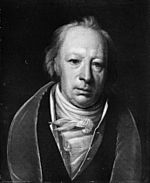
|
| Karl Morgenstern (1770-1852) | 1794 | 1798 | Associate professor | Student of Wolf, 1797 associate professor for philosophy; moved to Danzig, later to Dorpat |

|
| Wilhelm Lange (1767–1831) | 1795 | 1831 | Associate professor | Pupil of Wolf, 1795 private lecturer, teacher at the municipal high school, later at the Latin secondary school; University librarian, associate professor in 1810 or 1815 | |
| Friedrich Wilhelm Riemer (1774–1845) | 1797 | 1798 | Private lecturer | Wolf's pupil, in 1798 became tutor to Wilhelm von Humboldt, later Goethe's secretary and high school professor in Weimar |

|
| Karl Wilhelm Keferstein (1788–1836) | 1812 | 1813 | Private lecturer | Privatdozent of philology and history, left Halle during the wars of liberation, went to the grammar school in Lyck (Masuria) as a professor in 1816 | |
| August Ferdinand Naeke (1788–1838) | 1812 | 1818 | Associate professor | Hermann's pupil in Leipzig, occupied himself with Greek tragedy and Goethe research; Privatdozent, 1812 Privatdozent, 1817 Associate Professor; moved to Bonn | |
| Ludwig Friedrich Heindorf (1774-1816) | 1816 | 1816 | Full professor | studied in Halle, 1796 sub-rector at the Köllnisches Gymnasium Berlin, 1809 one of the first professors of the newly founded Berlin University, 1811 University of Breslau, there was an influential teacher of Karl Otfried Müller , but died after his appointment before he took up his professorship in Halle; Plato researcher | |
| August Seidler (1779-1851) | 1816 | 1824 | Full professor | Hermann-Schüler, professor of Greek literature, specialist in Greek metrics; from 1824 private scholar | |
| Abraham Gottlieb Raabe (1764–1845) | 1817 | 1845 | Full professor | Professor of Greek Language and Literature (in Wittenberg since 1802), head of the university library; was particularly concerned with Greek literary history | |
| Karl Christian Reisig (1792–1829) | 1820 | 1828 | Full professor | Hermann student; Extraordinarius, full professor in 1824, died in 1829 on a trip to Italy; Specialist in Greek language, founder of semasiology | |
| Moritz Hermann Eduard Meier (1796–1855) | 1825 | 1855 | Full professor | Successor to Seidler, specialist in Greek rhetoric and philosophy | |
| Gottfried Bernhardy (1800–1875) | 1829 | 1875 | Full professor | Successor to Reisig, from 1844 head of the university library; Specialist in Greek Linguistics |
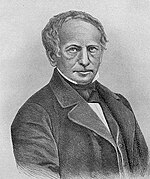
|
| Friedrich Ritschl (1806–1876) | 1829 | 1833 | Associate professor | 1829 doctorate and habilitation, 1832 associate professor; moved as full professor to Breslau, later to Bonn and Leipzig; most important representative of Latin studies of his time, specialist in early Latin language, literature and metrics |

|
| Johann Heinrich Krause (1800–1882) | 1843 | 1845 | Private lecturer | Specialist in Greek mythology and cultural history, gave philological and historical lectures; Habilitation in 1843, curator of the university library from 1845 to 1870 | |
| Theodor Bergk (1812–1881) | 1857 | 1869 | Full professor | Successor to Meier, specialist in Greek poetry |

|
| Karl Heinrich August Steinhart (1801–1873) | 1866 | 1872 | Honorary professor | gave lectures on Greek philosophy and history; Specialist in platonic philosophy | |
| Heinrich Keil (1822-1894) | 1869 | 1894 | Full professor | Successor to Bergk, specialist in Latin grammar and specialist writers |
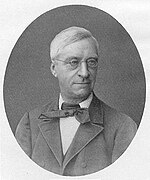
|
| Wilhelm Dittenberger (1840–1906) | 1874 | 1906 | Full professor | important epigrapher, specialist in ancient chronology |

|
| August Krohn (1840-1889) | 1876 | 1884 | Associate professor | Plato researcher, qualified as a professor in 1875, associate professor in 1881; moved to Kiel as professor of philosophy | |
| Eduard Hiller (1844-1891) | 1876 | 1891 | Full professor | Successor to Bernhardy, student of Jahn and Ritschl; Specialist in Greek and Roman poetry and philosophy |

|
| Johannes Schmidt (1850-1894) | 1878 | 1883 | Associate professor | Privatdozent, Associate Professor in 1883; moved to Giessen, later to Königsberg; Specialist in Greek and Latin epigraphy, especially Africa | |
| Hans von Arnim (1859–1931) | 1886 | 1892 | Private lecturer | at that time specialist in Greek tragedy and Hellenistic grammar, qualified as a professor in 1888 (with Karl Praechter); moved to Rostock as a professor, later to Vienna and Frankfurt am Main | |
| Max Ihm (1863-1909) | 1891 1906 |
1902 1909 |
Privatdozent Extraordinarius |
Specialist in Latin language, palaeography and epigraphy; 1900–1902 assistant, changed to Munich as editor of the Thesaurus Linguae Latinae; 1906 associate professor in Halle | |
| Friedrich Blass (1843–1907) | 1892 | 1907 | Full professor | Specialist in Greek rhetoric, epigraphy and linguistics |
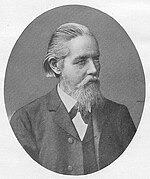
|
| Georg Wissowa (1859–1931) | 1895 | 1924 | Full professor | Successor to Keil, specialist in Roman religious history, science organizer (editor of the Realencyclopadie from 1891 to 1910); after a stroke (1923) |
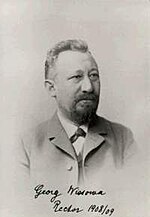
|
| Max Consbruch (1866-1927) | 1902 | 1909 | assistant | Specialist in ancient literary theory and etymologics; Senior teacher at the city high school, assistant in a part-time position; moved as a grammar school director to Eisenach, later to Breslau and as a provincial school councilor to Schleswig | |
| Christian Muff (1841-1911) | 1904 | 1911 | Honorary professor | Rector of the Pforta State School, wrote school editions of the Greek tragedians; from 1904 honorary professor of classical philology | |
| Otto Kern (1863–1942) | 1907 | 1931 | Full professor | Successor of Dittenberger, Wilamowitz student, specialist in orphics and the history of science | |
| Karl Praechter (1858–1933) | 1907 | 1927 | Full professor | Successor to Blass, specialist in ancient philosophy | |
| Otto Weinreich (1886–1972) | 1914 | 1916 | Private lecturer | Assistant, qualified as a professor in 1914, moved to Tübingen, later to Jena, Heidelberg and again Tübingen; Historian of religion | |
| Wilhelm Baehrens (1885–1929) | 1919 | 1922 | Associate professor | dismissed as professor in Ghent, habilitated in Halle in 1919 and appointed associate professor in 1920; moved to Göttingen; Specialist in Christian literature and panegyric |

|
| Ernst Diehl (1874–1947) | 1925 | 1937 | Full professor | Successor to Wissowas, specialist in Latin epigraphy |

|
| Heinrich Bischoff (1906–1941) | 1932 | 1939 | assistant | Herodotus specialist (Friedländer student), qualified as a professor in 1936; fell on the Eastern Front | |
| Paul Friedländer (1882–1968) | 1932 | 1935 | Full professor | Successor to Kern, released in 1935; emigrated to the USA in 1939; Specialist in ancient philosophy, tragedy and epigraphy | |
| Walther Kranz (1884–1960) | 1932 | 1937 | Honorary professor | Honorary professor for didactics of ancient languages, dismissed in 1937; emigrated to Turkey in 1943 and went to Bonn in 1950 | |
| Hermann Kleinknecht (1901–1960) | 1935 | 1943 | Senior assistant | Assistant, 1937 senior assistant, qualified as a professor in 1939 and deputy chair for Reitzenstein; moved to Rostock, later to Berlin (HU) and Münster | |
| Franz Altheim (1898–1976) | 1936 | 1950 | Full professor | Deputy Chair, 1937 Full Professor (successor to Diehl), 1943 Full Professor (1948 for Ancient History); at the same time represented ancient history in Halle; moved to the Free University of Berlin | |
| Erich Reitzenstein (1897–1968) | 1937 | 1958 | Full professor | Successor to Friedländer, deputy chair until 1938; Specialist in Greek and Roman poetry; fled to the FRG in 1958 and became full professor in Mainz in 1960 | |
| Carl Wendel (1874–1951) | 1947 | 1951 | Lecturer | Editor of poets' scholien, book and library scholar, 1927–1938 director of the ULB Halle; 1947 teaching position for philological and historical auxiliary sciences, 1949 substitution of the chair for Byzantine studies | |
| Dietrich Ebener (1920–2011) | 1951 | 1957 | Lecturer | Doctorate in 1954, habilitation in 1957; moved as a professor to Greifswald, later as a freelance writer to Bergholz-Rehbrücke; well-known translator |

|
| Werner Peek (1904-1994) | 1951 | 1969 | Full professor | Successor to Altheim, specialist in Greek epigraphy and Nonnos of Panopolis | |
| Joachim-Friedrich Schulze (1924-2010) | 1955 | 1990 | Senior assistant | Lecturer for Greek and Latin, habilitation in 1970; Specialist in literature from late antiquity | |
| Joachim Ebert (1930–1999) | 1959 | 1995 | Full professor | Assistant, doctorate in 1961, habilitation in 1969; 1983 professor with teaching assignment; Specialist in the history of sports in ancient times | |
| Berthold Häsler (1909–1982) | 1960 | 1974 | Full professor | Successor of Reitzenstein | |
| Wolfgang Luppe (1931-2014) | 1964 | 2014 | professor | Papyrologist, specialist in Greek literary papyri; Assistant, qualified as a professor in 1990, professor of papyrus studies in 1992, retired in 1996 | |
| Wolfgang Kirsch (1938-2010) | 1969 | 1993 | Full professor | Lecturer, 1986 professor; Specialist in Latin literature from late antiquity and the Middle Ages | |
| Rainer Jakobi (* 1958) | 1993 | Full professor | Successor to Kirsch, Latinist; Specialist in Roman literary history | ||
| Michael Hillgruber (* 1961) | 1995 | Full professor | Successor to Eberts, Graecist; Specialist in Greek rhetoric and literature from the imperial era as well as the history of science | ||
| Anne Friedrich | 2002 | Research assistant | Specialist in Latin literature from the imperial era and late antiquity, as well as the reception of antiquity |
Chair holder
First ordinariate:
- Ludwig Friedrich Heindorf (1816)
- August Seidler (1816-1824)
- Moritz Hermann Eduard Meier (1824–1855)
- Theodor Bergk (1857–1869)
- Heinrich Keil (1869-1894)
- Georg Wissowa (1895–1923)
- Ernst Diehl (1925–1937)
- Franz Altheim (1938–1948)
- Werner Peek (1951–1969)
- Joachim Ebert (1983–1995)
- Michael Hillgruber (since 1995)
Second ordinariate:
- Karl Christian Reisig (1824–1829)
- Gottfried Bernhardy (1829–1875)
- Eduard Hiller (1876-1891)
- Friedrich Blass (1892–1907)
- Karl Praechter (1907–1927)
Third ordinariate:
- Wilhelm Dittenberger (1874–1906)
- Otto Kern (1907–1931)
- Paul Friedländer (1932–1935)
- Erich Reitzenstein (1937–1958)
- Berthold Häsler (1960–1974)
- Wolfgang Kirsch (1986–1991)
- Rainer Jakobi (since 1993)
Further ordinaries:
- Abraham Gottlieb Raabe (1817–1845)
literature
- Joachim Ebert (Ed.): 100 Years of the Archaeological Museum in Halle 1891–1991. On the history of the Robertinum, its collections and scientific disciplines , Halle (Saale) 1991.
